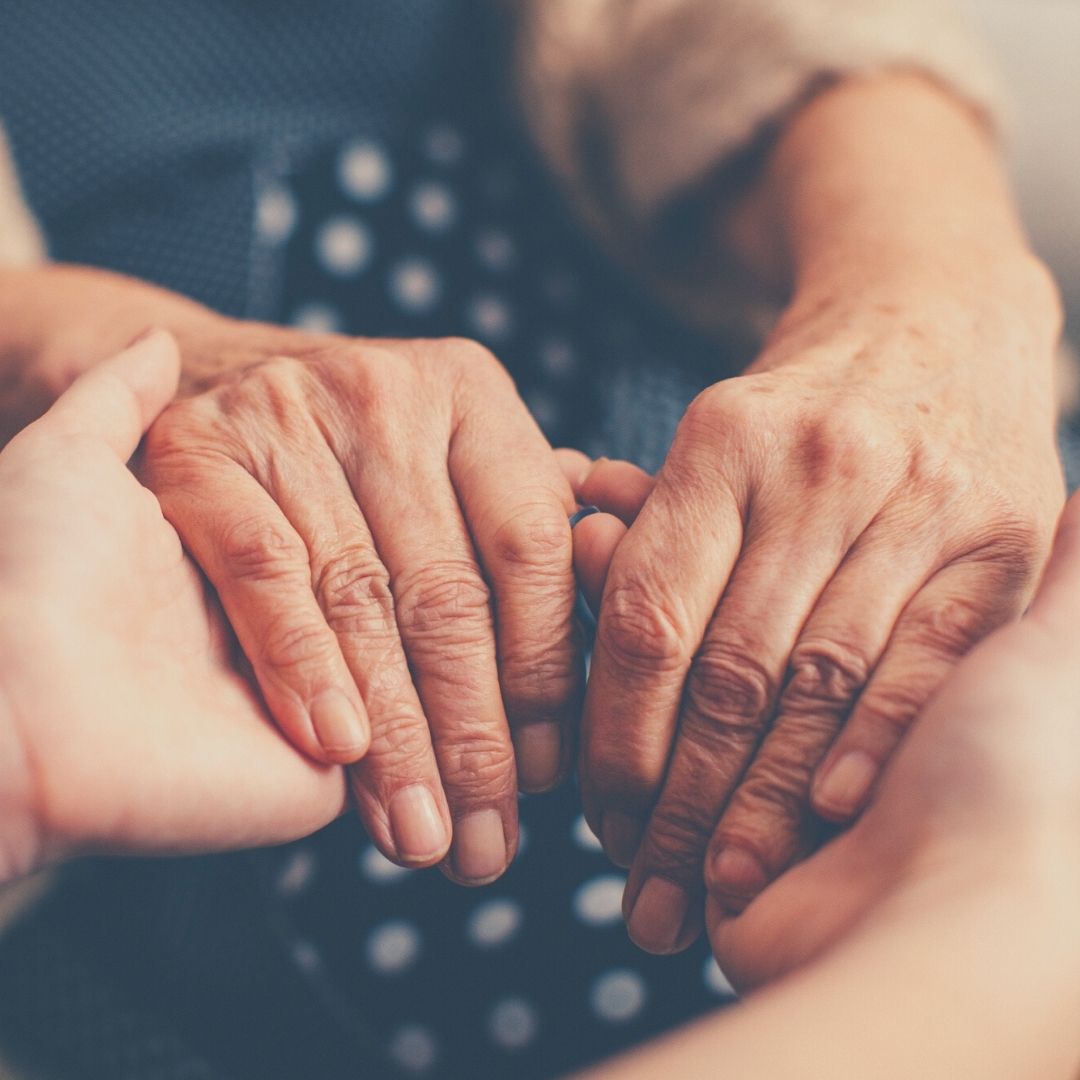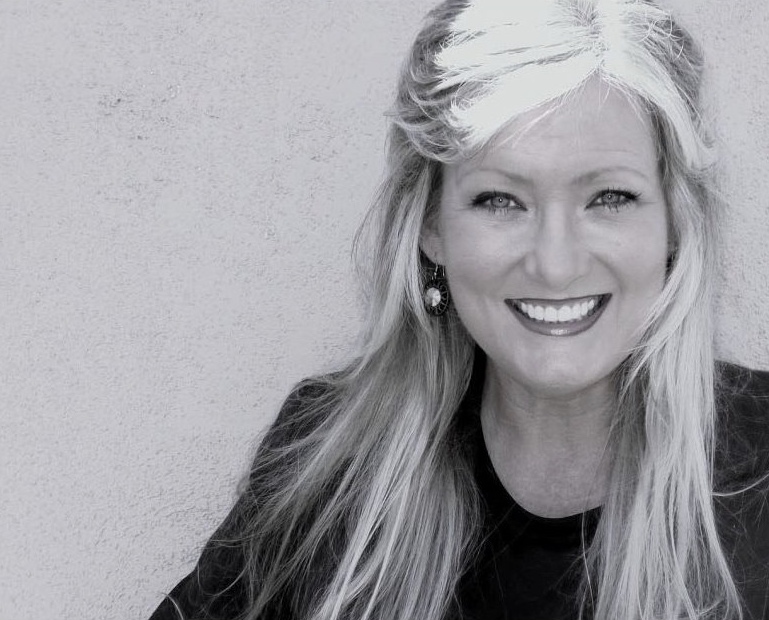There might be affiliate links on this page, which means we get a small commission of anything you buy. As an Amazon Associate we earn from qualifying purchases. Please do your own research before making any online purchase.
It finally happened. A wonderful person or opportunity came knocking on your door, but you froze. You just couldn’t move forward to let them in because someone or something in your past still grips your heart and mind.
You want to move forward in your life but don’t know where to begin. It’s okay. We’re going to help you sort it all out. In this article, we’ll provide an 11-step process to help you stop living in the past.
(Side note: One of the best ways to increase your happiness and life satisfaction is to plan your day, so you focus on your TOP goals. To get started, watch this free video that details the 7-minute habit for planning your day to focus on what's important.)
What You Will Learn
- What Does Living in the Past Mean?
- 1. Take responsibility and allow yourself to process emotions.
- 2. Understand the reason for your attachment to the past.
- 3. Identify what you learned from the experience.
- 4. Identify any positive aspects of the experience.
- 5. Let go of being a victim.
- 6. Apologies aren’t always necessary, but forgiveness is.
- 7. Learn to live in the present moment.
- 8. Focus on things you can change about yourself to be more positive.
- 9. Keep positive, supportive company and make great new memories.
- 10. Find happiness, joy, and gratitude every day.
- 11. Continue meditation and mental strengthening through neuropathway exercises.
- Final Thoughts on How to Stop Living in the Past
What Does Living in the Past Mean?
There is a difference between reminiscing and living in the past. Reminiscing is recalling memories and letting them stay where they should: in the past. Living there is when you cling to memories so tightly that you can’t move on.
Whether it’s because you can’t let go of a positive or negative feeling or emotion or a tremendous heartache, the memories seem to always be just under the surface. To learn how to put it behind you, you need to understand the reason it happened.
Reasons you live in the past may include traumatic experiences, fear that it will happen again, or shame that it ever did. You may also wish to change an outcome, hang on to the fear of the present or future, or worry that you will never experience a deep emotion, like love, again.
When you attach memories to your life so profoundly, it takes time and patience to heal and adopt a healthier mindset to stop living in the past. You can overcome this obstacle.
The first step is to ask yourself what keeps you from moving on and enjoying the moment in front of you. Self-reflection and journaling can help you figure it out.
In this article, we’ll give you 11 steps to stop living in the past and put it behind you to help you get started on your journey to a bright new future. You’ve got this.
1. Take responsibility and allow yourself to process emotions.
Learning to take responsibility for your role and your feelings attached to the past will take time and patience. You will also need to open yourself up to feel the emotions and process them in a healthy way and space.
Accept the past for what it was at that time and that you can’t change it in the present moment even if you want to do so. The past existed, but it doesn’t right now.
Acknowledge that you may have made mistakes, hurt others, or contributed to your pain and suffering. If others harmed you, acknowledge that too. Keep in mind that there is only one person who controls your emotions: you. Accept the responsibility for anything those emotions caused, whether it may have been lashing out, retaliating, or any other bad reaction.
Taking responsibility and processing emotions is vital to your overall health and well-being. An inability to do it can result in some ugly repercussions such as:
Once you learn to take responsibility and deal with your emotions, you will feel an enormous burden lifted from you. You’ve only started. Now, you must explore why you were hung up on the past in the first place.
2. Understand the reason for your attachment to the past.
You may cringe at the suggestion of uncovering the reason for your attachment to the past, but it is necessary to learn, grow, and move toward a more positive future. What you discover will shine a light not only on your weaknesses but also on your inner strengths.
It can be confusing and overwhelming to try to figure out the reason on your own. The mere thought of trying to tackle this part can deter you from conquering your mission to stop living in the past.
To help you, here are a few questions to ask yourself:
Take your time and meditate on these questions. Reflect on how the event made you feel, how you responded, and how you have lived since then.
Instead of focusing on the negative points, target your attention on the positive things you are learning about yourself. For instance, your stamina, ability to feel deep heartfelt love, and dedication to others are aspects to treasure. Hold on to those jewels.
Bring these positive attributes with you to the next step. When you understand why you hang onto the past, you can start to identify what it taught you as a person.
3. Identify what you learned from the experience.
It’s easy to adopt the perspective that all you learned from the past is that someone hurt you, you were victimized, and you won’t ever let that happen again. But is that really true? Or is it just a simpler way of coping with the uncomfortable task of working through your attachment?

Human beings are complex creatures with even more complex brains. Learning is a process that goes far deeper than you may think. There are things you learn every day that you don’t even realize.
That being the case, you will need to meditate, reflect, and turn up the notch on some in-depth self-examination. It may help to keep a journal about what you discover.
Here are some questions to consider:
Now that you understand things you learned from the past, you are ready to nail down other elements that you probably haven’t considered: optimistic aspects of the past.
4. Identify any positive aspects of the experience.
You’ve already touched on some positive things about yourself. Now, it’s time to concentrate on positive aspects of the past. This will help you let go and stop giving it free real estate in your mind.
Of course, there are negative aspects to the past, and in most instances, this is why we hang onto it. It takes honest, insightful introspect to pinpoint any positive qualities. Yet, this is precisely what you’re going to do.
These questions will help you tap those little nuggets on the head and hold onto them:
You are making fantastic progress in learning how to stop living in the past. Be proud of yourself. This stuff isn’t easy.
Now that you have a foundation built from many positive points about yourself and the past, you can move forward and seize back your power.
5. Let go of being a victim.
Trauma sometimes causes a psychological condition where a person feels a loss of control in their life. It may compel the person to hang onto the past, live in a state of fear, and avoid certain relationships, situations, or events. The fear may be that the trauma might happen all over again. Sometimes, guilt, shame, or regret may also present overwhelming anxiety towards that loss of control.
This is a conditioning or frame of mind called “victim mentality.” Every human being is susceptible to it; however, people who suffered trauma such as abuse or violence are particularly vulnerable. The good news is that most people can change their thinking, arise from the ashes, and flourish.
One of the most critical steps to stop living in the past is to stop being a victim. This requires a choice to look at the past from a completely different perspective.
These are a few exercises to practice every day to let go of being a victim:
Don’t let the past steal your control and run your life. This is not an option. Reclaim your tremendous power, expand your perception of yourself, and grasp your true identity. Reject the idea that you are a victim by turning the situation on its head. You are in control of your life, not the past.
You can do this! Once you stop being a victim, it will be easier to move into the next phase of forgiveness. Buckle in. It’s not what you may think it is.
6. Apologies aren’t always necessary, but forgiveness is.
There is an old mistaken belief that to forgive someone means you must have contact with them or give them a second chance. This is not what forgiveness means.
Forgiveness doesn’t mean you change the person who harmed you or the situation. It means that you change your perspective and attitude toward them or the past.
Forgiveness could entail facing the person eye-to-eye to give them words of forgiveness, but it’s unnecessary. It isn’t a gift you give them as if you want to hand them a second chance on a silver platter.

It does mean that you have changed your stance, and in this regard, the act of forgiving is only important to your healing. It doesn’t matter what others think about it.
Also, don’t expect apologies from someone who harmed you. An apology isn’t needed for you to forgive and go forward with your life. You don’t need anyone’s permission, and you don’t need to wait for them to extend an apology. Just move on.
These are a few ways to arrive at forgiveness in your heart:
Forgiveness is not an option when learning how to put your past behind you and leave it there. It is crucial. One of the best ways to manifest it is by concentrating on the present.
7. Learn to live in the present moment.
While you’re in meditation or prayer, imagine yourself with a bow and arrow held up in a shooting posture. Turn your back on the past and aim your arrow at this very moment. Release the arrow and hit your target dead center. You nailed it!
While your attention is on the present and no longer in the past, do these things:
You are living in the present moment. Now, extend your focus and gratitude into every day and make it a lifestyle.
Soon, the past is no longer a ball and chain dragging you down, preventing you from experiencing all the beautiful things in your life. Appreciate what is right in front of you before you miss it.
Armed with this superhuman force, you’re ready to go to battle against the next obstacle: recreating yourself.
8. Focus on things you can change about yourself to be more positive.
Go ahead and let out that big sigh. Let’s get that out of the way. After all, practicing personal growth is not everyone’s favorite thing. It’s so much easier to believe that everyone else needs to change. Right?
This battle is about targeting things you can change about yourself to be more positive. It doesn’t involve anyone else, so you will need to face this challenge head-on on your own.
There are four areas of blockage to your personal growth that you’ll need to work on:
Baggage
We’ve all heard the term used, but not everyone fully comprehends what it means. Baggage is a knee-jerk response to triggered stimuli that you subconsciously or consciously connect directly to a past event or trauma. It can cause you to feel fear, low self-esteem, anger, panic, or other negative thoughts and emotions.
Negative Habits
Negative habits are different from baggage because they are more of a practiced or rehearsed routine that you’ve become comfortable incorporating into your everyday life. To change negative patterns, you will have to be aware of them and work purposely to leave your comfort zone and change them.
Negative Emotions
Although emotions are closely tied to baggage, they aren’t only baggage. Negative emotions don’t necessarily need a trigger or connection to the past. Sometimes, they just exist because you’ve grown familiar and comfortable with them. These may include sadness, frustration, fear, anger, or hopelessness.
Environment
Your healing and success in leaving the past behind depend heavily on the environment surrounding you. It reinforces whatever thoughts and feelings you hold about yourself, good or bad. To effectively promote positive personal growth, you will need to improve your environment to include positive, supportive people and healthy living.
That wasn’t so hard. Now, you get to do the fun stuff. Rebuilding a supportive network of positive people and making memories will help nudge out dark memories of the past.
9. Keep positive, supportive company and make great new memories.
If you already have a positive, supportive network of friends, that’s wonderful! However, if you have negative, non-supportive people in your life, this may be the time to cut them loose and set yourself free. This is a decision that you will need to meditate on and consider very carefully.
Clearly, you must stop living in the past and put it behind you. This mission is going to take all the strength, focus, and positivity that you can find. You need a network of like-minded souls to rebuild a foundation of healing.
The best way to find a supportive friend is to become a supportive friend. You’ll need to carve time out of your schedule to meet new people, get involved in new groups, and contribute to shaping new friendships.
You aren’t only going to accept support from them, but they will need you to support them as well. Giving and receiving is the trick to building the best lifelong relationships. You’re on an exciting journey, and genuine happiness is already in your hands.
10. Find happiness, joy, and gratitude every day.
When you wake up every day and go to bed every night saying, “Thank you,” miracles happen. The enormous power of expressing gratitude for everything in life ushers in more amazing blessings. You’re probably wondering, “How does that work?”
Believe it or not, it’s all based on science. Quantum physics’ Law of Attraction states that atom particles vibrating energy at a particular frequency attract to themselves other atoms vibrating at that same frequency.
Your thoughts, ideas, projections, and attitudes are energy. If they weren’t, they’d be pretty dead in the water and going nowhere. That would mean that the energy our brains put into thoughts doesn’t exist either.
We know that’s not true, because thoughts do exist. Thoughts created civilizations, put humankind on the moon, and developed all the fantastic technologies we enjoy in our lives every day.
All of this relates directly to how you stop living in the past. Your thoughts, your energy, dictate how you perceive the present moment. Therefore, make a deliberate choice to be grateful for everything around you.
Sing. Laugh. Dance. Create joy. Be kind and help others. Put good energy out there and enjoy the very breath you breathe.
Science has your back on this one. It also has one more gift to help you stop living in the past: brain exercise.
11. Continue meditation and mental strengthening through neuropathway exercises.
Now that you’ve taken all the steps to stop living in the past and put it behind you, you’ll need to make it a lifestyle. That takes practice. After all, healing is an ongoing process, not a one-time miracle cure. Even masters and gurus must practice.
Continue mediation or prayer. Use neuropathway exercises for mental strengthening. Do these things every day, or several times per day. You will soon see a vast improvement in your life.
Here are a few exercises to advance neuroplasticity and healing:
Neuropathway exercises retrain the brain to make healthier energy connections that improve brain function. This, in turn, promotes overall health and healing so you can successfully move on into your beautiful present moment.
Final Thoughts on How to Stop Living in the Past
Taking the necessary steps to stop living in the past and putting it behind you takes courage, but it is worth the hard work. How seriously you take it and the effort you put into it will determine whether you will succeed. With commitment, patience, and routine practice, freedom from the past can be yours.
Why not begin your journey to healing now?
To start, you may want to look at 9 Life Purpose Examples to Find Your True Purpose. We’re with you on your quest for a healthy and bright future.

Rain Story is an author and screenwriter. She is an alumna of the University of Arkansas at Little Rock, the University of New Mexico, and the University of Kentucky. She earned two B.A.s and four years of graduate studies in literature, languages, and creative writing before personal tragedies pulled her away from her graduate work. She is also a Donaghey Scholar and fellow of the William G. Cooper, Jr. Honors Program in English.
Finally, if you want to increase your happiness and life satisfaction, then watch this free video that details the 7-minute habit for planning your day to focus on what's important.


